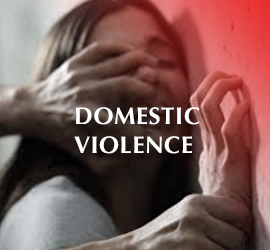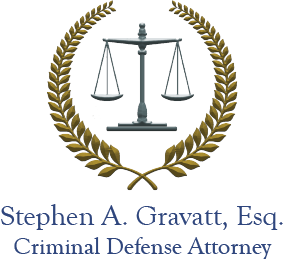
WHAT IS DOMESTIC VIOLENCE? EXPERIENCED CRIMINAL LAWYER DEFENDS DOMESTIC VIOLENCE CHARGES
Every experienced lawyer knows that in New Jersey Domestic Violence is defined by N.J.S.A. 2C: 25-17, i.e., The Prevention of Domestic Violence Act. Domestic violence is the actual or threatened abuse (whether physical, emotional, sexual, or economic) of an individual victim (at least 18 years old) by someone with whom they have had an intimate relationship (think husband-wife, boyfriend-girlfriend). One who has been accused of committing domestic violence definitely needs to retain an experienced attorney to defend against the alleged victim’s allegations. Conviction results in the issuance of a Final Restraining Order (FRO) which permanently forbids further contact between the parties and exposes one to jail time for future violations. Obvious complications flow from the issuance of a final restraining order FRO for married individuals with children who had been residing together. Your lawyer should advise you that (if a finding of fact that you violated the domestic violence act is made and an order is entered against you) the order could require you to continue paying the mortgage, utility bills, property taxes, on the marital residence while prohibiting you from setting foot within 500 feet of the property. Your attorney should further advise you that the order would prohibit all further contact of any kind with the victim. Your lawyer should advise you that any violation of any of the terms of the order could quickly expose you to a disciplinary proceeding and possible jail time. Your attorney should advise you that attempting to communicate with the victim through third persons or social media would constitute a violation of the order.
The first thing your lawyer must evaluate is the nature of your relationship with the alleged victim. The law requires that the relationship between the parties must be one of marriage; separation; divorce; living together in the same household at present or in the past; a person whom the victim has dated or a person with whom the victim has a child (coparent) or anticipates having a child with (pregnant-future coparent). If your relationship with the victim or with the alleged abuser does not fall within one of these categories your attorney must argue that no final restraining order FRO can issue because the relationship between the parties does not place the victim within that class of persons the Legislature intended to protect under the Prevention of Domestic Violence Act. Conversely, an attorney representing a victim must strive to create an argument that the relationship between the parties is within the purview of the Prevention of Domestic Violence Act.
WHO CAN APPLY FOR PROTECTION FROM THE COURT AGAINST AN ABUSER?
Both men and women have standing to apply for court Ordered protections under the Law as long as the Court determines that his or her allegations constitute acts of Domestic Violence against him or her. An experienced domestic violence attorney can advise you as to whether the conduct alleged constitutes an actionable offense.
WHAT SPECIFIC CRIMINAL OFFENSES CONSTITUTE DOMESTIC VIOLENCE?
There are fourteen (14) crimes which (if engaged in by the abuser) constitutes act(s) of domestic violence against the victim.
Homicide, Assault, Terroristic Threats, Kidnapping, Criminal Restraint, False Imprisonment, Sexual Assault, Criminal Sexual Contact, Lewdness, Criminal Mischief, Burglary, Criminal Trespass, Harassment, Stalking.
As an experienced criminal lawyer, I would say that the most common conduct alleged by a victim is that an accused has perpetrated a simple assault, harassment, terroristic threats. It is an unfortunate fact that as an experienced family law attorney I have seen many instances in which alleged victims exaggerate conduct as a strategy to gain exclusive control of the marital residence. Oftentimes there is no actual evidence of harrassment or terroristic threats. Evidence of simple assault can also be manufactured.
WHAT IS THE REMEDY OR RELIEF FOR A VICTIM WHO NEEDS PROTECTION?
The Prevention of Domestic Violence Act allows a victim to ask a Superior Court Family Part Judge, or a Municipal Court Judge sitting in the municipality where the parties reside, to issue a Temporary Restraining Order (TRO) against the party allegedly engaging in the abusive behavior. As any experienced lawyer will tell you, the bar for an alleged victim to obtain a temporary restraining order TRO is quite low. One need only to allege that he or she has been harassed or threatened and the court will issue a temporary restraining order TRO which is effective immediately. A few weeks later, presumably after the parties have retained an experienced attorney, a final restraining order FRO hearing is conducted to establish findings of fact and to impose permanent relief.
If granted, the TRO requires that the party allegedly engaging in the abusive behavior to:
- Physically move out of the marital residence and dwell elsewhere; and
- Have no contact of any kind with the alleged victim, which extends to no contact through third persons and/or through social media; and
- Alleged abuser must physically not go within 500 feet of the marital residence;and
- Alleged abuser has exposure for criminal prosecution for the underlying acts of abuse;and
- Alleged abuser has exposure for quazi-criminal prosecution if the alleged abuser violates the terms of the TRO; and
- Alleged abuser may have exposure to damages from a civil law suit brought by the victim; and
- If the couple has children the alleged abuser may be prevented from having any contact with the children; and
- Alleged abuser is subject to confiscation of any weapons possessed (hand guns, shot guns, rifles, knives, etc…);and
- Alleged abuser can be Ordered to pay Pendente Lite relief (roofing costs, health insurance, auto insurance, car payments, etc…) of the alleged victim and family.
WHAT RIGHTS DOES AN ALLEGED ABUSER HAVE AGAINST DOMESTIC VIOLENCE ALLEGATIONS?
All people have due process rights under the New Jersey Constitution and the Federal Constitution. That means an abuser gets a hearing before a judge at which time defenses to the allegations can be raised. But as an experienced lawyer, I can tell you that the process can have immediate catastrophic consequences.
Temporary Restraints (TRO) stay in effect for what is usually a two (2) week period after which the matter is scheduled by a Superior Court Family Part Judge for an oral hearing to determine whether the TRO should ripen into a Final Restraining Order (FRO). If you are an alleged abuser your lawyer will explain to you that you must immediately find another place to reside and that if you need possession of any personal property stored within the marital residence that you must apply for and obtain a police escort. If you have any weapons (firearms) in the marital residence, ebven if you are a law enforcement officer in lawful possession or possess a valid firearms purchaser identification card, the police will confiscate any weapons they find in the marital residence. At the conclusion of proceedings and with the help of an experienced attorney you might be able to get your weapons back.
Live testimony is taken from both the alleged victim (and his or her fact witnesses) and the alleged abuser (and his or her fact witnesses). This where an experienced lawyer can help. The task of your attorney is to formulate examination questions which force damaging admissions from your adversary. Oftentimes non attorney persons simply dont possess the advocacy skills to successfully build a defense.
Furthermore, Family Court hearings are “bench trials” in which the trier of fact is a judge. There is no jury. All testimony is recorded. At the conclusion of the proceedings the judge decides whether sufficient facts have been established to make a finding that the alleged abuser has engaged in acts constituting Domestic Violence and therefore the temporary restraining order TRO should become a final restraining order FRO versus whether the victim has not made out a credible case and the temporary restraining order TRO should therefore be dismissed. Your attorney will tell you that concentrated power in the hands of one trier of fact can either make or break your case.
The standard of review that must be applied by the judge is not whether Domestic Violence must be proved “beyond a reasonable doubt” as is true in criminal cases–it is more like the civil standard of established by “a preponderance of the evidence. That means that the standard of review is whatever the judge hearing the case believes likely happened. That is why it is crucial that the attorney you retain is experienced.
And if you are accused of engaging in conduct which could constitute Domestic Violence that should make you very, very concerned indeed.
DOES AN ALLEGED ABUSER HAVE ANY DEFENSES TO ALLEGATIONS OF DOMESTIC VIOLENCE?
Yes, although it is often times an uphill battle.
DEFENSE NO. 1: IT WAS A MARITAL CONTRETEMPT–NOT DOMESTIC VIOLENCE.
If there was no, or only trivial, harassment or unwanted touching, it could be useful to argue that the conduct constituted neither of those offenses but rather constituted something known as a “marital contra tempt”. Bresocnik v. Gallegos. This essentially a verbal argument during which the abused did not argue with purpose to vex, harass, annoy. It was just an earnest argument over a normal everyday domestic issue. An experienced lawyer must ask the questions on cross examination of your adversary that trigger an admission that makes your position on summation credible. A non attorney might completely overlook this nuance and miss a chance to persuade the judge that the conduct did not constitute harassment but was only an earnest dispute about a legitimate issue.
DEFENSE NO. 2: THE VICTIM IS NOT ELIGIBLE FOR PROTECTION UNDER THE PDV ACT.
The relationship between the parties cannot be reasonably defined as the type of relationship to which the Prevention of Domestic Violence Act (PDVA) applies. Therefore only normal criminal and civil causes of action can be maintained. Your lawyer must strive to characterize the relationship between the parties as is necessary to defend.
DEFENSE NO. 3: THE VICTIM’S TESTIMONY IS NOT TRUTHFUL OR CREDIBLE.
Angry, vindictive people lie to gain unfair advantage in dissolution of marriage proceedings.
Many(women) are advised to allege domestic violence regadless of the merits of the allegations because their partner-spouse is immediately dispossessed of the marital residence and of contact with all family members.
Unfortunately, as a trial attorney I have seen many shocking moments when a judge rules against an accused under circumstances which seem manifestly unjust.
Life just isn’t always fair and it really does matter how your lawyer presents your case. Perception, rightly or wrongly shapes reality.
This is usually a litigant’s biggest problem in domestic violence court and where he or she really needs an experienced lawyer to establish testimony that supports his or her position.
DO I NEED TO HIRE A LAWYER TO DEFEND ME IF I AM ACCUSED OF ENGAGING IN DOMESTIC VIOLENCE?
Yes. The consequences to you in the event that the TRO ripens into a permanent FRO are so serious and so devastating that it absolutely makes sense to get represented by an experienced attorney.
I have been practicing law in New Jersey for thirty (30) years and I have handled many Domestic Violence TRO-FRO matters.
If you find yourself in the midst of a Prevention of Domestic Violence PDVA nightmare, please contact me for a free initial consultation, reasonable rates, in depth analysis and no noncence strategy.
